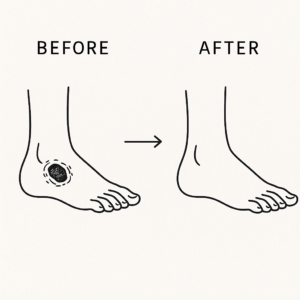Cooking Oil and Brain Diseases
In the past, frying pancakes and various dishes in cooking oil was a common tradition, especially during holidays. Many foods, including fried chicken, are made by deep-frying ingredients coated in batter. The enticing aroma of frying oil plays a significant role in enhancing the taste experience.
However, recent claims suggest that the very cooking oils responsible for these delightful flavors might actually be harming the brain. These oils include common household vegetable oils such as grapeseed oil, sunflower oil, canola oil, and soybean oil—oils widely believed to be beneficial for health. So, what is the truth behind this claim?

Eliminating Cooking Oil May Reduce Brain Diseases
In his book Cooking Oil Kills the Brain, Japanese neuroscientist Dr. Tetsumori Yamashima argues that cooking oils pose a significant threat to brain health for both adults and children.
Initially, the book’s title may seem extreme, but the author believes it accurately represents the seriousness of the issue. He suggests that eliminating cooking oil from our diet could be a life-saving measure for those suffering from brain-related illnesses.
The mechanism behind cooking oil’s harmful effects on the brain is straightforward. According to Dr. Yamashima, the main component of vegetable oil is linoleic acid, which produces a toxic substance called 4-hydroxy-2-nonenal (HNE) when overheated or reused. HNE is a lipid peroxidation product commonly found in soybean oil, corn oil, safflower oil, canola oil, and sunflower oil.
HNE gradually destroys newly formed baby neurons and mature neurons in the hippocampus, which plays a crucial role in memory and emotion. In essence, cooking oils contain two major neurotoxins: HNE and trans fats.
The Production Process of Cooking Oils and Their Dangers
Dr. Yamashima explains that HNE is present in cooking oil even before heating. Industrially produced oils involve extracting oil from seeds, nuts, or grains using solvents such as hexane or heptane, chemicals derived from petroleum. Hexane, a component of kerosene, is commonly found in brake cleaners sold in auto shops.

After extraction, the oil undergoes bleaching at 110°C to remove color, followed by deodorization at 250°C to eliminate unwanted odors. These high-temperature processes destroy most of the oil’s original nutrients while increasing the concentration of toxic HNE compounds. As a result, the refined oils we consume contain harmful substances that corrode cell membranes and disrupt brain function.
How HNE Acts as a Neurotoxin
HNE oxidatively damages heat shock protein 70 (Hsp70), a protein responsible for protecting nerve cells. This oxidative damage leads to a chain reaction that ruptures lysosomes, the cell’s recycling factory. Similar to how rust deteriorates metal, HNE degrades cell membranes, causing neurons to lose function.
Dr. Yamashima emphasizes that brain health is directly influenced by dietary fats. The key distinction lies in whether the fats used in cell membranes are highly perishable (bad oils) or resistant to oxidation (good oils).
- Bad oils: Cooking oils containing linoleic acid (omega-6), which are prone to oxidation and inflammation.
- Good oils: Fish oils (omega-3), such as DHA and EPA, which strengthen cell membranes and resist oxidative stress.
The Omega-3 and Omega-6 Imbalance
DHA and EPA, found in fish oil, belong to the omega-3 family, whereas linoleic acid-rich vegetable oils fall under the omega-6 family. Both are classified as polyunsaturated fatty acids (PUFAs), but their effects on the body differ significantly:
- Omega-6 fatty acids promote inflammation and increase blood viscosity, leading to atherosclerosis and blood clots.
- Omega-3 fatty acids reduce inflammation, prevent arterial blockages, and support brain health.
- Excessive omega-6 intake is linked to Alzheimer’s, depression, and cardiovascular diseases.
The Right Balance of Omega-3 and Omega-6
Although omega-6 fatty acids are not inherently harmful, maintaining a balanced intake is crucial. According to dietary guidelines:
- The Japanese Ministry of Health recommends an omega-6 to omega-3 ratio of 4:1.
- The Japan Society for Lipid Nutrition suggests 2:1.
- Dr. Yamashima advocates for an ideal ratio of 1:1.
Many common illnesses, including Alzheimer’s, atherosclerosis, strokes, depression, ADHD, and atopic dermatitis, have been linked to excessive omega-6 consumption.
Is Alzheimer’s Disease Linked to Cooking Oil?
Alzheimer’s disease has long been associated with the accumulation of amyloid-beta plaques and tau protein phosphorylation. However, Dr. Yamashima challenges this hypothesis, proposing that HNE from cooking oils is the primary culprit.
Evidence suggests that some individuals with high amyloid-beta levels do not develop Alzheimer’s, while those exposed to excessive HNE show a higher risk of cognitive decline. Similarly, while cholesterol has been blamed for atherosclerosis, research indicates that oxidative damage—not cholesterol itself—is the real danger.

What Oils Should We Use Instead?
If cooking oils are so harmful, what should we use instead? Dr. Yamashima recommends replacing common vegetable oils with sesame oil, perilla oil, flaxseed oil, olive oil, and rice bran oil. He also urges parents to educate their children about the dangers of processed foods, especially fast food and snacks high in trans fats.
Margarine, which is chemically solidified vegetable oil, has been falsely marketed as a healthier alternative to butter. However, it contains high levels of trans fats, which impair brain development and overall health.
Fried foods like fried chicken, donuts, and processed snacks loaded with hydrogenated oils contribute to brain deterioration. Nutrition education should start by eliminating margarine and cooking oils from household kitchens.
Final Thoughts
Dr. Yamashima cites scientific research linking HNE to Alzheimer’s disease, suggesting that cooking oil is a significant contributor to cognitive decline. Given the widespread consumption of processed foods and fried items, modern society may be facing an epidemic of brain-related illnesses.
Raising awareness about the dangers of vegetable oils could be a crucial step toward better public health. By reducing processed oils and increasing omega-3 intake, individuals can protect their brain health and overall well-being.
Choosing the right dietary fats is essential for maintaining optimal brain function and preventing neurodegenerative diseases.
However, choosing the right oil is not easy. As the author emphasizes, flashy advertisements in television, newspapers, magazines, and flyers often obscure our judgment about cooking oils. Hearing phrases like “Reduce animal fat and increase linoleic acid-based vegetable oils,” “Zero cholesterol content,” and “Linoleic acid in cooking oil lowers cholesterol” makes it difficult for consumers to recognize the potential dangers of vegetable oils.
In the book’s conclusion, the author references an English research paper arguing that “Hydroxynonenal is the cause of Alzheimer’s disease.” He asserts that the scientific evidence is strong enough to confidently claim that “one of the causes of Alzheimer’s disease is cooking oil.”
If that is the case, aren’t modern people—who consume cooking oils and fast food almost daily—potential Alzheimer’s patients? The author hopes that this book will raise awareness and encourage more people to reconsider their reliance on vegetable oils.
Cooking Oil Kills the Brain by Tetsumori Yamashima, translated by Kim Jeong-hwan / Book Quest











